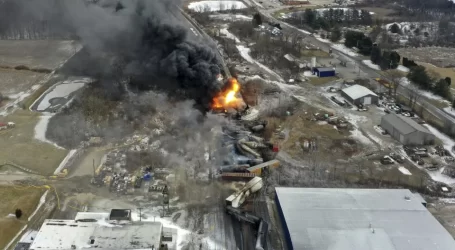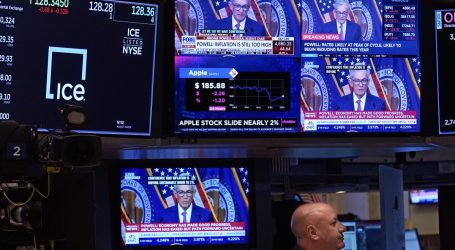Americans’ wealth rises by $3 trillion but remains below early 2022 peak

Elevated by a strong stock market, Americans’ household wealth rose to nearly $149 trillion in the first quarter of 2023, new federal data shows. But that’s still several trillion dollars shy of its recent peak.
The net worth of households rose by $3 trillion in the early part of this year, according to the Federal Reserve’s quarterly report on US financial accounts. The data also includes nonprofit organizations.
Households saw the value of their stock holdings increase by $2.4 trillion. The S&P 500 rose and fell over the first quarter, but ultimately ended up around 7%. The tech-heavy Nasdaq jumped nearly 17%, its best quarterly gain since the end of 2020.
But these advances were offset by a slumping housing market. The value of real estate holdings dropped by $0.6 trillion as higher interest rates cooled sales in the first quarter.
Though Americans’ net worth has been rising since the third quarter of last year, it has yet to return to its recent high point of nearly $153 trillion in early 2022.
“We’re climbing our way back,” said Kathy Bostjancic, chief economist for Nationwide, an insurance and financial services firm. “If the equity market continues to rally as it is, maybe it won’t be too long before we’re back to the peak.”
Growth of debt slows
Americans’ appetite for debt continued to cool in the first quarter.
Household debt expanded at a 2.2% pace as growth in both mortgages and consumer credit slowed, the Federal Reserve report showed. That compares to a growth rate of 7.6% in 2021.
Borrowers took out nearly $306 billion in mortgage debt in the first three months of the year, compared to more than $1 trillion in the second quarter of 2022, Bostjancic said. The pullback was prompted largely by the Fed’s repeated interest rate hikes.
Overall, the data speaks well of the strength of the household sector.
“The balance sheet for the consumer looks pretty healthy at this point in a business cycle,” she said, noting that it’s one of the reasons why if the nation falls into a recession, it likely would not be a long and deep one.











